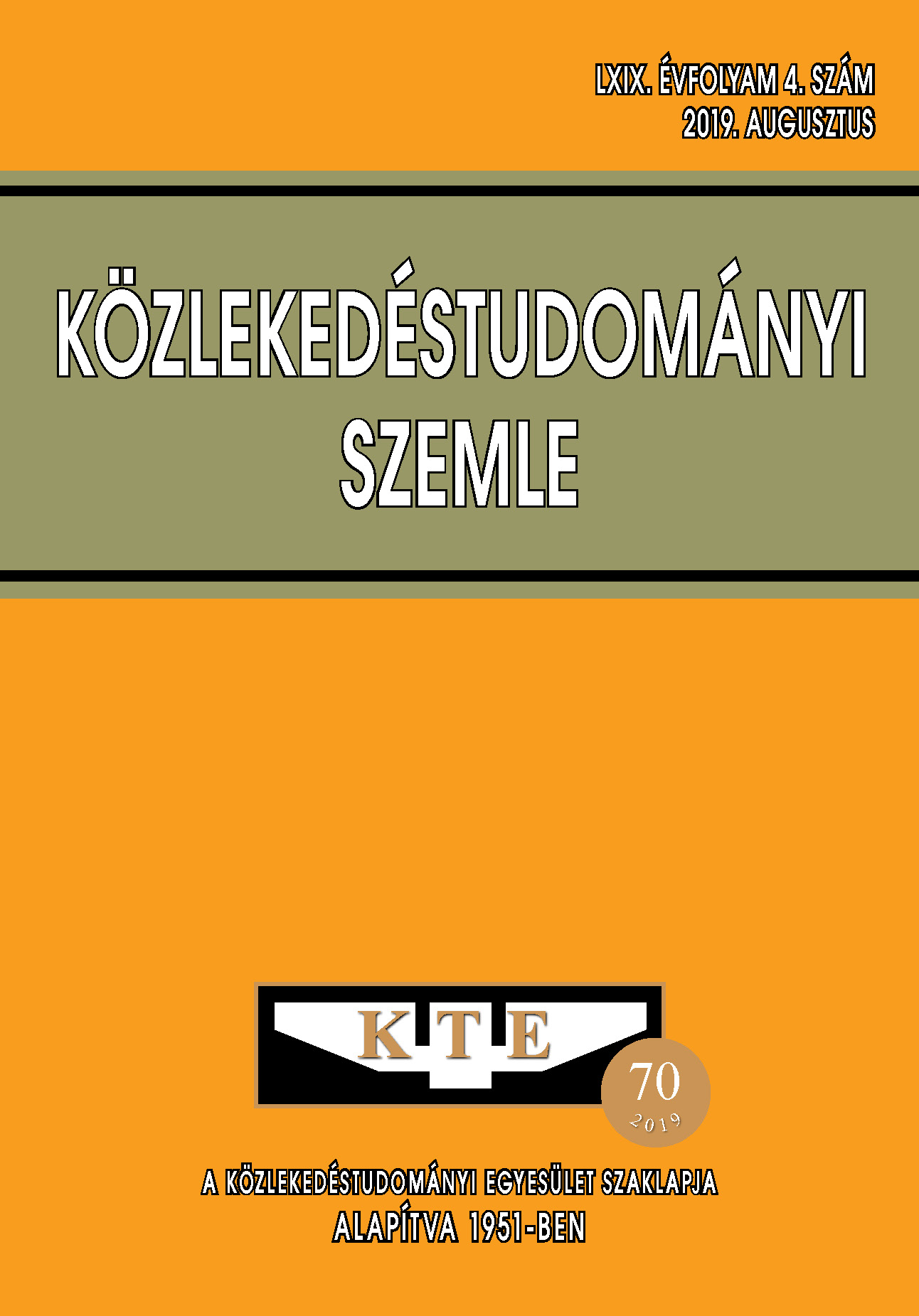The impact of overtourism on the transformation of urban transport in Budapest
Abstract
The global and domestic scale of tourism has exceeded perhaps all of its previous growth rates. This makes impact analyses focusing on the issue of overtourism highly justifiable. Besides its significance in national economy, the impact of tourism on the transport system is also considerable. Considering this, a multidimensional approach of the topic is important.
References
Jancsik A.-Michalkó G.-Csernyik A. 2018: Megosztás megosztottság nélkül. - Közgazdasági Szemle 65(3), pp. 259-286.
Jászberényi M.-Pálfalvi J. 2006: Közlekedés a gazdaságban. Aula Kiadó. Budapest 468p.
Michalkó, G.−Hinek, M.−Jusztin, M.−Váradi, Zs.−Vizi, I. 2007: Taxi és turizmus: a taxiközlekedés szerepe Budapest nemzetközi vendégforgalmában. Turizmus Bulletin, X. évf. 3. szám, pp. 34-39.
MONITOR Társadalomkutató Intézet és Módszertani Központ 1999: A külföldi turisták véleménye a budapesti tömegközlekedésről. Kézirat. Budapest.
Remenyik B.-Szabó L.-Tóth G. 2014: Közlekedésföldrajz és turizmus Magyarországon. Dialóg-Campus Kiadó. Budapest, 164p.
Remenyik B.-Sikó B.-Szabó L.-Guth L. 2018: The Relationship between Public Transport and Tourism in Budapest pp. 33-34. In: Nataša, URBANČÍKOVÁ (szerk.) Smart Communities Academy: Proceeding of Abstracts Košice, Szlovákia : Technical University of Kosice, (2018) p. 51
Remenyik B.-Szabó L. 2019: Világturizmus. Dialóg-Campus Kiadó. Budapest, 219p.
Remenyik B.-Szabó L.-Sikó B. 2019: Az overtourism hatásai a szállodaiparra. Gazdálkodás 19/2. (megjelenés alatt)
Vitézy D. 2019: Innovatív megoldások a városi közlekedésben. In: Jászberényi M.-Munkácsy A.: Innováció és Közlekedés. Konferenciakötet. (megjelenés alatt).
https://bkk.hu/fejlesztéseink.hu
https://bkk.hu/wp-content/uploads/2012/04/Va rosnezo_BKK_szabalyozasi_koncepcio.pdf
Articles published electronically are open access (OJS), freely available online and can be downloaded. Authors of articles are not charged any publication or publishing costs (APC). Users have the right to read, download, copy, print, and search the articles, or share the full text with a link.
Authors must declare that their submission has not been previously published in another journal, that financial support has been acknowledged, and that the list of references is complete and accurate, including specification of URLs and DOIs (if available). When submitting a draft article, each author approves the submitted version. Authors guarantee that the article is their original work. Authors are required to participate in the peer review process, follow the advice of reviewers, meet the prescribed deadlines, and, if any, withdraw the submission or correct errors.
All submitted articles are subject to peer review, where the editors request an independent evaluation from at least one expert, ensuring that the reviewer(s) have no conflicts of interest with the authors. The final decision is made by the Editor-in-Chief, who takes into account the evaluations and the suggestions of the editors. The editors and reviewers treat the submission confidentially.
The publisher and editors are committed to maintaining high ethical standards and to preventing publications that involve research misconduct. They follow the COPE guidelines on such ethical issues.
The authors retain copyright and grant the journal the right of first publication under the Creative Commons License (https://creativecommons.org/licenses/by-nc-nd/4.0), which allows others to share the work, while acknowledging the authorship of the work and the first publication in the journal.
The journal archives all published articles, and the journal's owner, the Hungarian Society of Transportation Sciences, will continue to operate the database even if the journal ceases to be published.















